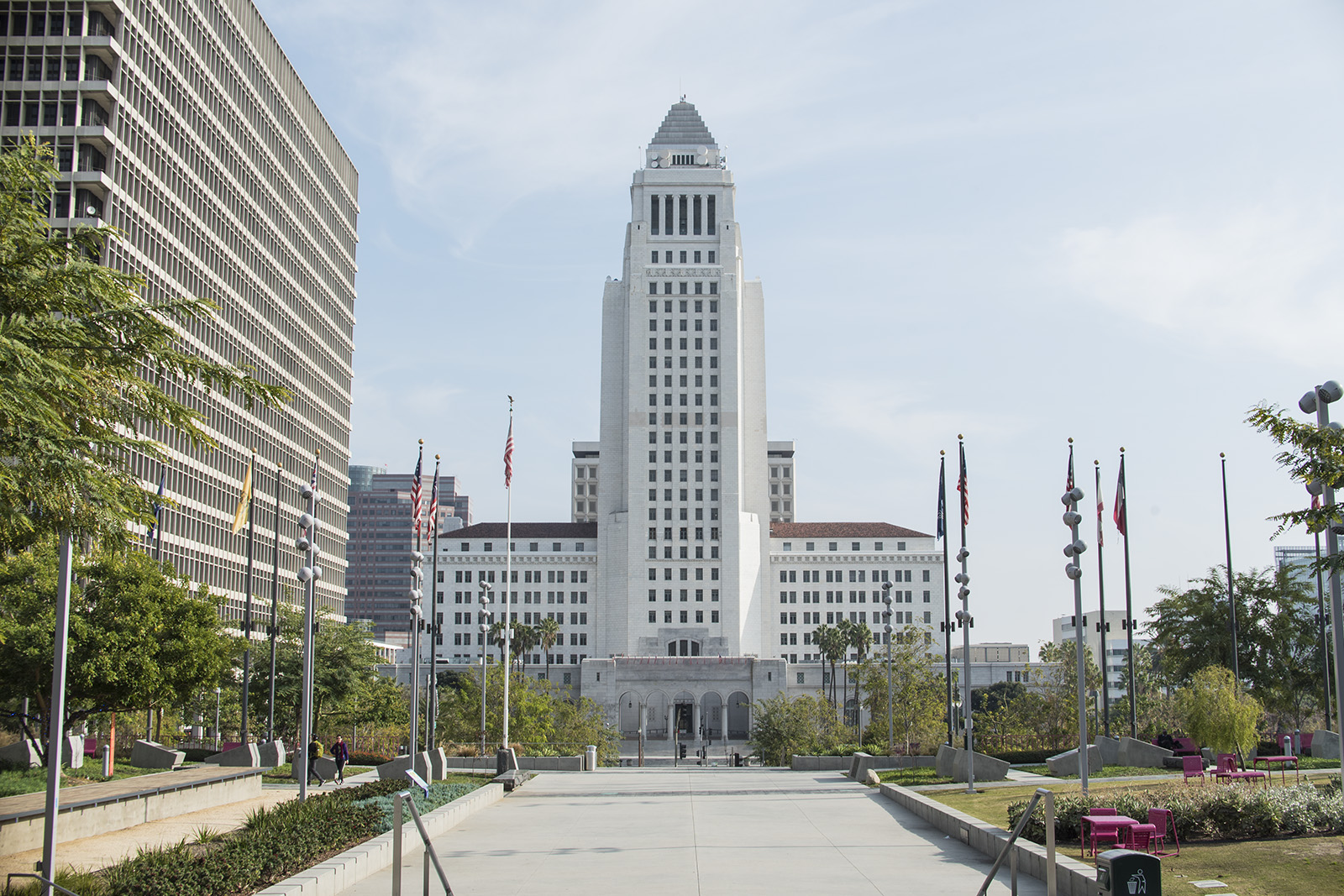Stuart Key: Post election, LA must find another way to increase affordable housing

While Measure S failed in last week’s city election, the city government must work to address the “pay-to-play” culture that haunts City Hall. (Daily Bruin file photo)
By Stuart Key
March 15, 2017 9:39 p.m.
At UCLA, flyers and volunteers constantly encourage Bruins to vote and fulfill their civic duties. Any student could tell you these elections are a big deal.
Or maybe not, since only 7.5 percent of students registered to vote on the Hill actually participated in last week’s municipal election.
However, the results still matter. Measure S, a measure on the ballot which would have put a two-year hold on zoning amendments for large construction projects, failed, marking a victory for groups such as the Save UCLA Housing coalition.
Despite its failure, Measure S had good intentions. It was meant to fight the current system of construction approvals, where City Hall officials push aside local zoning laws in decisions that oftentimes coincide with political donations by developers.
Now that the measure has failed, the city government needs to act individually to eradicate the corruption that runs through its political process with a new general plan and zoning regulations that mandate more affordable housing while allowing the community to have a say in how those developments proceed. A plan like this could force developers to work with, rather than against, the community at large – which has been a trend in recent LA developments.
Measure S was not proposed to destroy UCLA housing. The initiative was created in response to construction projects that violate local zoning regulations, but are approved anyway by the city despite community opposition. In some notable cases, these approvals can also coincide with donations from wealthy developers to political campaigns or the local communities.
One blatant example of this is the Sea Breeze apartment complex in Torrance, California, being built by Samuel Leung. Leung, a wealthy developer and businessman, received approval for the project after multiple donations totaling more than $600,000 that were given to various city politicians in the name of his workers, as reported by the Los Angeles Times.
These projects can also act as agents of gentrification. The Reef, a self-described “creative urban habitat,” is a luxury housing and shopping center being built in South LA, a low-income community. The development is clearly not being built to cater to the low-income population already in the area, but to attract residents with more disposable income to spend on its restaurants and stores.
[Related: Gentrification of LA detrimental to lower-income population]
The Reef and Sea Breeze are two projects that follow the pattern of benefiting the developer more than the community, but there are many more examples.
These are the kind of construction projects Measure S intended to stop. Projects such as these make developers money at the expense of the community. At the same time, it does not take an expert to realize that a moratorium on building new high-density residential facilities in a city that grows as quickly as LA is a bad idea.
Just ask Michael Manville, an assistant professor in urban planning at UCLA’s Luskin School of Public Affairs. He was against Measure S because it would have blocked housing – an especially detrimental move since Measure S would have worsened an already serious LA housing issue.
But, according to Manville, the problem is not amendments to the plan, but an outdated city plan that is meant for suburban neighborhoods rather than the city’s needs.
“LA’s General Plan is badly out-of-date, and many of its neighborhoods are zoned for densities much lower than the city needs if housing is going to be affordable,” he said.
He added that these outdated rules cause the city to grant amendments and exceptions to them in order to build more housing but also cause communities to feel ignored. Communities trust zoning laws to keep their integrity as residential neighborhoods, but that trust is broken when City Hall is consistently amending these laws.
The city needs to stop its current practice of making individual amendments to the general plan, which leaves communities out of the process and allows a place for political donations from developers. In order to build more housing, it should change zoning laws to mandate more affordable housing be built, but done in a manner where community members can provide crucial input. By doing this, communities can trust in the local government and the underlying issues of Measure S can be addressed.
Of course, citizens and politicians have tried to increase housing availability. Measure JJJ, approved by voters in the fall, mandated that developers make some of their housing affordable. But the city is growing fast, and outdated zoning laws have caused the city to use amendments to build more housing – except in a way in which communities were alienated and cut out of the decision process. If the city wants to alleviate these concerns and provide housing, then City Hall has to make changes to zoning laws to allow both community input and affordable housing.
The answer is more affordable housing, and if the current plans do not allow that, they need to be changed. Los Angeles will continue to grow economically no matter what happens, but its current residents may not like what happens to their communities if nothing changes.

